
National University of Kyiv-Mohyla Academy, colloquially known as Mohylianka, is a highly ranked national research university located in a historic section of Kyiv, Ukraine. The university is bilingual in Ukrainian and English and is one of Ukraine's few universities with internationally recognized diplomas. NaUKMA takes part in numerous international university collaborations, such as the European University Association. With around 4000 students, NaUKMA is one of the smallest universities in Ukraine.

Filipp Sergeyevich Ivanov, more popularly known as Filipp Sergeyevich Oktyabrsky, was a Soviet naval commander. He began service in the Baltic Fleet in 1918. From 1925–27 he studied at the Naval Academy in Leningrad. As vice-admiral he was given command of the Black Sea Fleet in March 1939 and headed its actions during the Sieges of Sevastopol (1941-1942) and Odessa (1941). After the war he became a Deputy Commander-in-Chief of the Navy, commander of all naval test centres and from 1957 to 1960 head of the Black Sea Higher Naval Institute "Admiral Pavel Nakhimov" in Sevastopol.

There existed an evolved system of military education in the Soviet Union that covered a wide range of ages. The Soviet Armed Forces had many tri-service educational opportunities as well as educational institutions for the Soviet Ground Forces, the Air Forces, and the Navy. The Soviet Border Troops, the KGB and the Internal Troops also maintained service academies.

The Kiev Theological Academy (1819—1919) was one of the oldest higher educational institution of the Russian Orthodox Church, situated in Kiev, then in the Russian Empire. It was considered as the most senior one among similar academies in Moscow, Saint Petersburg, and Kazan. It was located at the Kiev Podol within the Kiev Epiphany Monastery. In the Russian historiography, the Academy′s predecessor was the Academia Mohileana that was founded earlier in the 17th century.

The Nakhimov Naval School or Nakhimov School is a form of military education for teenagers introduced in the Soviet Union and once also located in other cities. They are named after well-known Russian admiral Pavel Nakhimov.
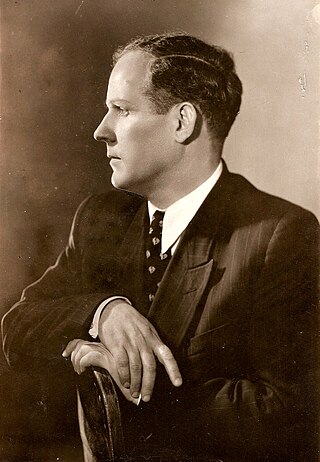
Oleksandr Prokopovych Markevych was a Ukrainian zoologist, and a prolific helminthologist and copepodologist. He was professor and an Academician of the National Academy of Sciences of Ukraine.

Valériy Khmelkó was a Ukrainian sociologist, Professor at the Sociology Department of the National University of Kiev-Mohyla Academy, and President of the Kyiv International Institute of Sociology.

Kyiv Military Aviation Engineering Academy in Kyiv, Ukraine was one of the leading military university-level institutions and research centers of the Soviet Union for the preparation of highly qualified engineers of various specialties for the Soviet Air Forces and Soviet Air Defence Forces. After the breakdown of the Soviet Union, it became the main military school in Ukraine, preparing engineering and logistics officers for the Ukrainian Air Force.

The Admiral Nakhimov Higher Naval School is a higher naval education institution of Russia which prepares future officers for the Russian Navy. It was created in the basis of both the Black Sea Red Banner Higher Naval Institute "Admiral Pavel Nakhimov" and the Higher Naval Engineer Institute of Sevastopol.
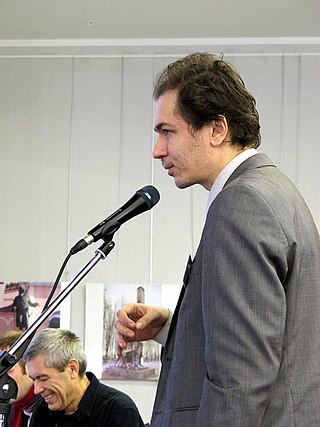
Andriy Ihorovych Bondarenko is a Ukrainian composer and pianist.
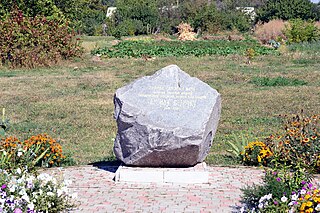
Samiilo Vasyliovych Velychko — was a Ukrainian Cossack nobleman and chronicler who wrote the first systematic presentation of the history of the Cossack Hetmanate.
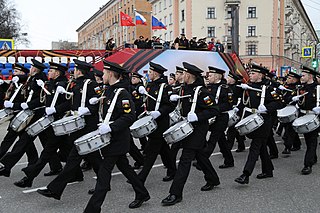
The Murmansk Nakhimov Naval School is one of five Nakhimov Naval Schools in Russia. The current head of the school is Vice Admiral Alexei Maksimchuk.

The Azerbaijan Higher Naval Academy is an educational institution of the Azerbaijani Naval Forces. It is part of the education system of the Ministry of Defense of Azerbaijan. It was originally founded in 1939, during Soviet times, when it was called the Caspian Higher Naval Red Banner School named after Sergei Kirov.

The Riga Higher Military Political School named after Marshal of the Soviet Union Sergey Biryuzov was a military academy in the Soviet Union located in the capital of the Latvian SSR, the city of Riga. In the years it existed, it trained military personnel in a number of specializations from its headquarters on Ezermalas Street.

The Nakhimov Naval School in Saint Petersburg is a military boarding school of the Russian Navy.

The Main Political Directorate of the Soviet Army and Soviet Navy was the central military-political organ of administration in the Soviet Armed Forces in 1919 through 1991 and controlled by the Communist Party of the Soviet Union.
Manifesto to the Ukrainian people with ultimate demands to the Ukrainian Rada is an official document of the Council of People's Commissars of the Russian Soviet Federative Socialist Republic, prepared by Chairman of the Council of People's Commissars Vladimir Lenin, People's Commissar for Foreign Affairs Leon Trotsky, People's Commissar of Nationalities Joseph Stalin.

Yefim Afanasievich Shchadenko was a Soviet colonel general who served as Deputy People's Commissar of Defense during the early years of World War II.
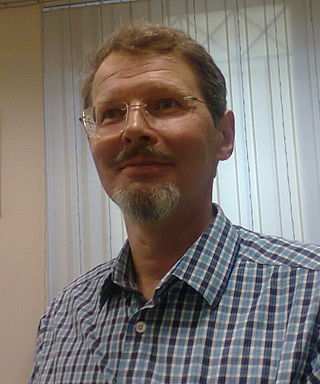
Oleksiy Petrovych Tolochko is a Ukrainian historian and medievalist, doctor of historical studies, and corresponding member of the National Academy of Sciences of Ukraine. Tolochko is the director of the Centre of Kievan Rus' Studies in Kyiv, and is known for his work on textual criticism of the Primary Chronicle.

Boris Aleksandrovich Engelhardt was a Russian military and political figure, and the first revolutionary commandant of Petrograd during the February Revolution.




















